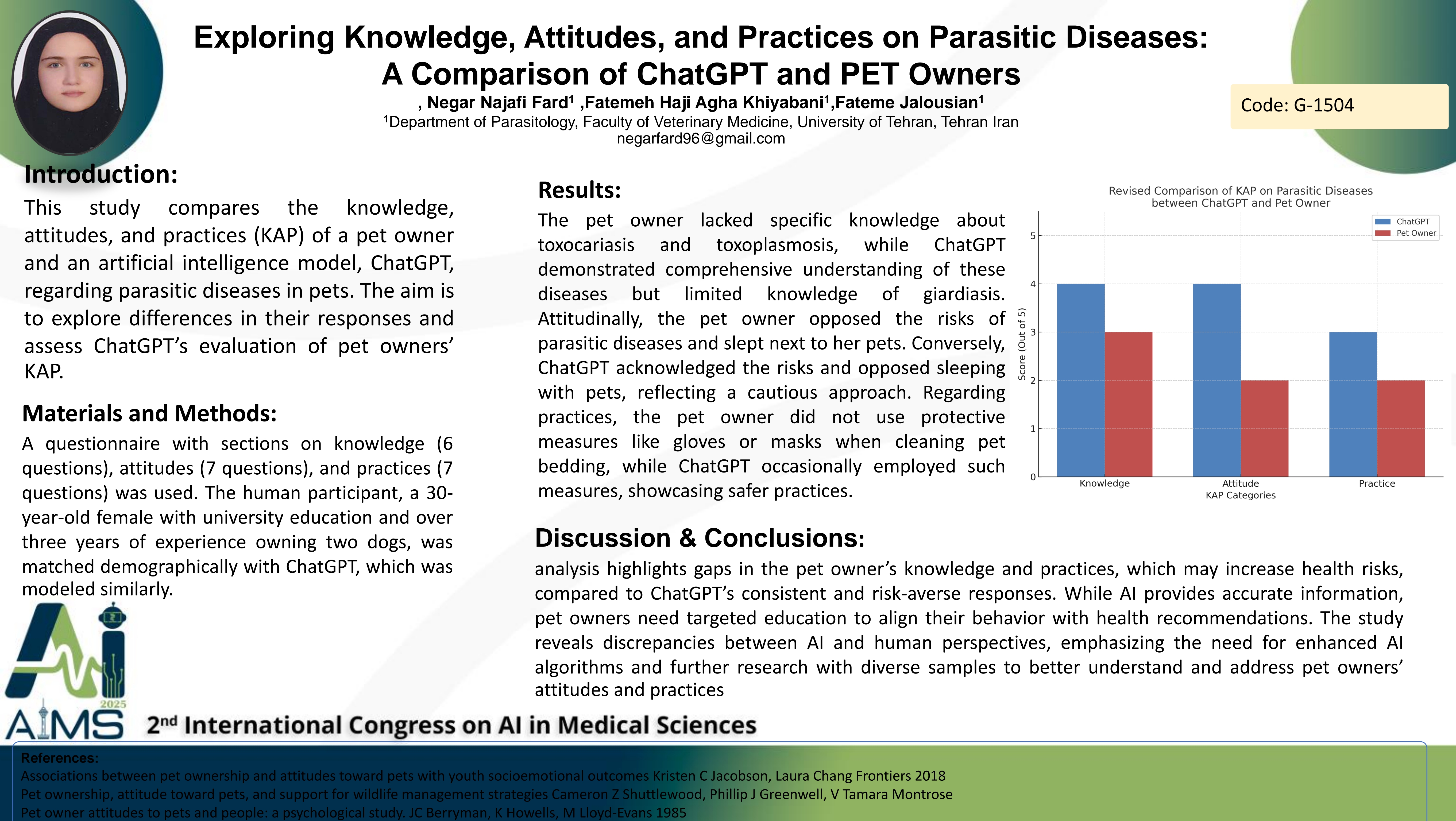Exploring Knowledge, Attitudes, and Practices on Parasitic Diseases: A Comparison of ChatGPT and PET Owners
Code: G-1504
Authors: Negar Najafifard ℗, Fatemeh Haji Agha Khiyabani , Fatemeh Jalousian *
Schedule: Not Scheduled!
Tag: Intelligent Virtual Assistant
Download: Download Poster
Abstract:
Abstract
Background: This study compares the knowledge, attitudes, and practices (KAP) of a pet owner and an artificial intelligence model, ChatGPT, regarding parasitic diseases in pets. The aim is to explore differences in their responses and assess ChatGPT’s evaluation of pet owners’ KAP. Methods: A questionnaire with sections on knowledge (6 questions), attitudes (7 questions), and practices (7 questions) was used. The human participant, a 30-year-old female with university education and over three years of experience owning two dogs, was matched demographically with ChatGPT, which was modeled similarly. Result: The pet owner lacked specific knowledge about toxocariasis and toxoplasmosis, while ChatGPT demonstrated comprehensive understanding of these diseases but limited knowledge of giardiasis. Attitudinally, the pet owner opposed the risks of parasitic diseases and slept next to her pets. Conversely, ChatGPT acknowledged the risks and opposed sleeping with pets, reflecting a cautious approach. Regarding practices, the pet owner did not use protective measures like gloves or masks when cleaning pet bedding, while ChatGPT occasionally employed such measures, showcasing safer practices. Conclusion: analysis highlights gaps in the pet owner’s knowledge and practices, which may increase health risks, compared to ChatGPT’s consistent and risk-averse responses. While AI provides accurate information, pet owners need targeted education to align their behavior with health recommendations. The study reveals discrepancies between AI and human perspectives, emphasizing the need for enhanced AI algorithms and further research with diverse samples to better understand and address pet owners’ attitudes and practices.
Keywords
ChatGPT, Knowledge Assessment, Zoonotic Infections
